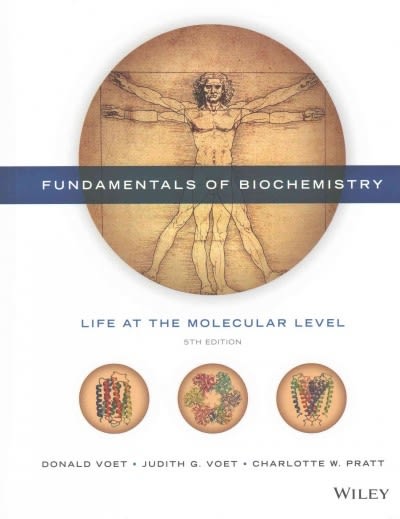The white blood cells known as T lymphocytes respond to antigens that bind specifically to the T
Question:
The white blood cells known as T lymphocytes respond to antigens that bind specifically to the T cell receptor, which consists of an antigen-binding αβ transmembrane protein as well as a set of transmembrane signal transducing proteins known as CD3 that are targets of NRTKs. The cytoplasmic domains of the CD3 proteins are positively charged and, in the absence of antigen, interact with the intracellular surface of the plasma membrane in such a way that buries several of their Tyr residues in the lipid bilayer. Antigen binding to the T cell receptor leads to a localized influx of Ca2+ ions.
(a) Explain how a high concentration of Ca2+ could promote phosphorylation and activation of the CD3 proteins.
(b) Would this phenomenon make the T lymphocyte more or less responsive to the antigen?
Step by Step Answer:

Fundamentals Of Biochemistry Life At The Molecular Level
ISBN: 9781118918401
5th Edition
Authors: Donald Voet, Judith G Voet, Charlotte W Pratt





